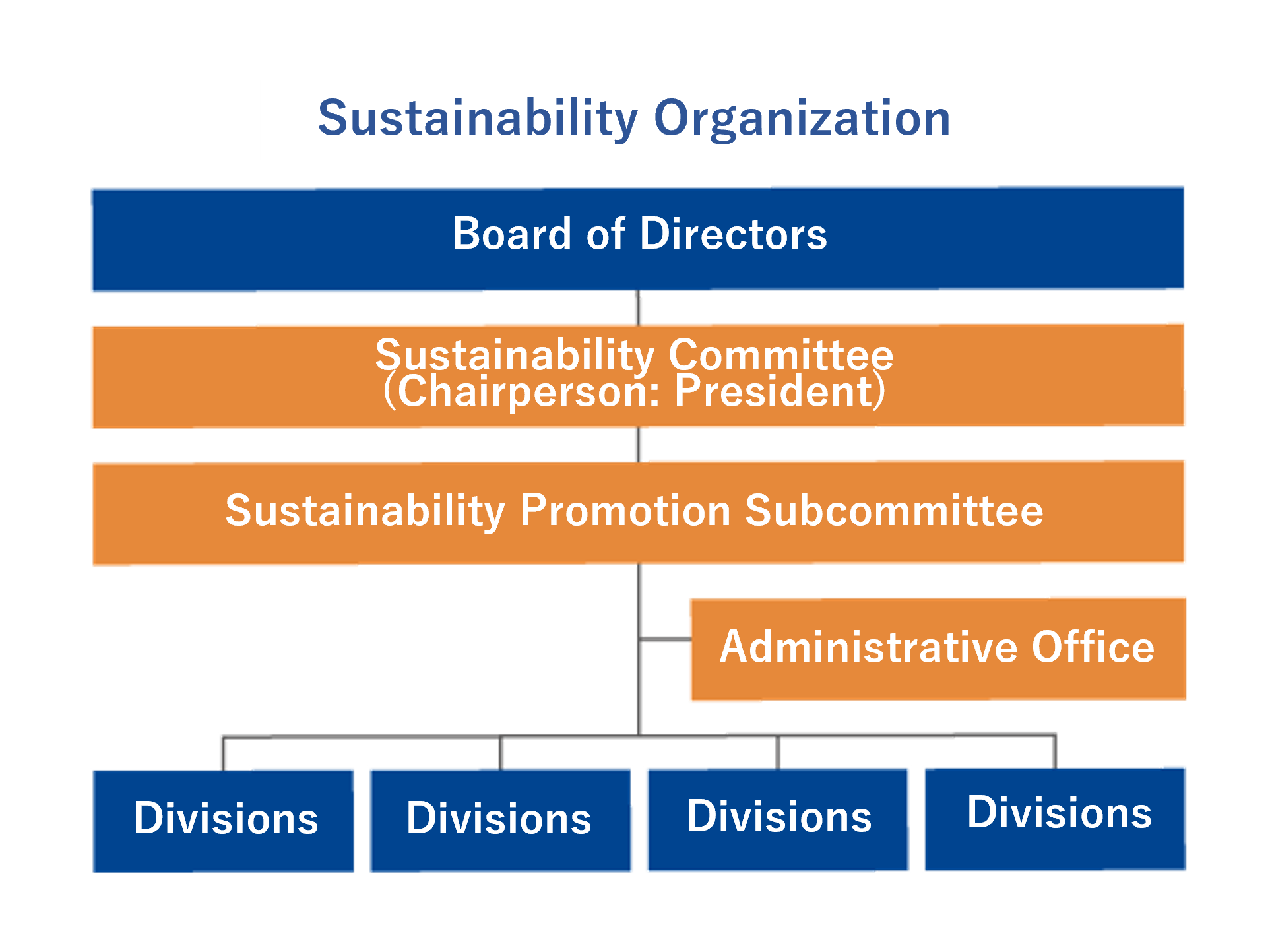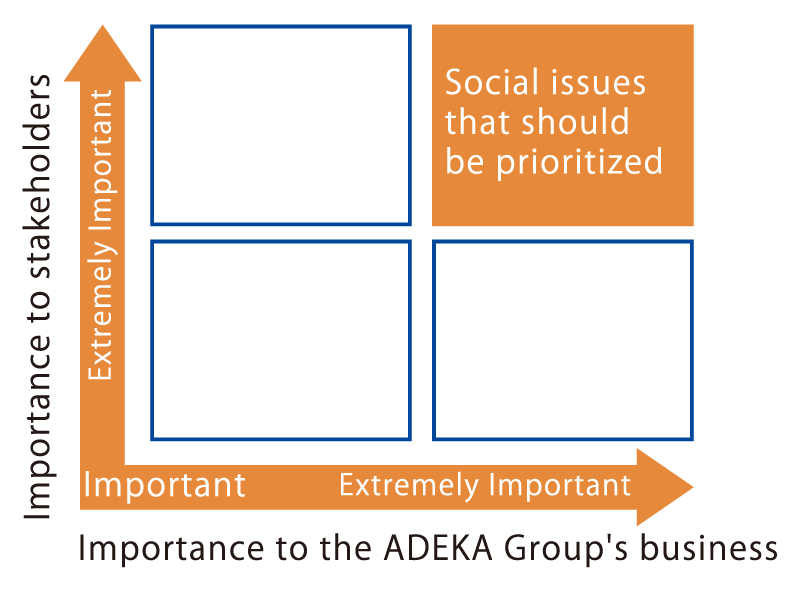The ADEKA Group Fundamental Sustainability Policy
The ADEKA Group contributes to the creation of a sustainable future by meeting stakeholders' expectations with technologies and reliability through fair and transparent corporate activities.
As a member of society and a SOZAI(our Excellent Value; products, technologies & services) manufacturer, the ADEKA Group is committed to fulfilling its basic responsibilities and contributing to the creation of a sustainable society. The Group also aims to achieve sustainable growth.
Decision-Making Process for Sustainability Priority Issues
Determined to achieve sustainable growth as a good corporate citizen, the ADEKA Group recognizes the importance of addressing social issues through its business activities and contributing proactively to the advancement of society.
To share this commitment Group-wide and execute these efforts as a team, the ADEKA Group has identified a series of Sustainability priority issues. The Sustainability priority issues were selected in light of their importance to internal and external stakeholders as well as to the Group’s business.
1
Extracting Potential Sustainability Priority Issues
Based on international guidelines, benchmark case studies, investment-related indexes, and internal interviews, thoroughly examine the ESG risks and opportunities in the corporate activities of the ADEKA Group and select 38 items.
2
Scoring and Visualizing the Sustainability Priority Issues
Through discussions in the Sustainability Committee, Sustainability Promotion Subcommittee, and internal divisions, sort the items based on the importance to the ADEKA Group's stakeholders on one axis and the importance to the Group's business on the other axis.
3
Identifying Priority Domains and Sustainability Priority Issues
Categorize the Sustainability priority issues according to each ESG aspect and each related priority domain.
Sustainability Priority Issues and KPIs
The Group identified seven Sustainability priority issues in four priority domains and specified a series of key performance indicators (KPIs) for realizing ADEKA VISION 2030. Going forward, the Group will use the KPIs in managing its business activities, as it strives to realize its targets.
| Priority Domains | Sustainability Priority Issues for 2030 | KPIs in 2030 | |
|---|---|---|---|
| E | Environment |
|
|
|
|
||
| S | Better living conditions and communication |
|
|
|
|
||
| Human rights and human resources |
|
|
|
|
|
||
| G | Governance |
|
|
*1:The FY2019 sales of “Eco-friendly Products” will be 45.2 billion yen after retroactive application due to the addition of eligible products.
*2:Unified the certification unit as “product”.
■Eco-friendly products
ADEKA defines “eco-friendly products” as products that contribute to reducing environmental impact throughout all phases of their life-cycles, from resource gathering to final disposal.⇒ Currently 17 product lines
■ AIV(ADEKA
Innovative Value)
ADEKA certifies its products whose value is recognized by the public both in name and practice based on recommendations from external parties, net sales, profitability, etc.⇒ Currently 37 products
Sustainability Organization

ADEKA Corporation has established the Sustainability Committee, a sustainability decision-making body chaired by the President, and the Sustainability Promotion Subcommittee under the Sustainability Committee. The committee and subcommittee lead company-wide sustainability initiatives.
Additionally, ADEKA has a Corporate Sustainability Department and a Carbon-Neutral Strategy Department. It actively takes actions to contribute to the achievement of a sustainable society.
Response to Various Initiatives
ADEKA has signed the United Nations Global Compact (UNGC), which covers 10 principles in four fields: Human rights, labor, the environment and anti-corruption, registered as a corporate participant on April 6, 2021. In tandem with this move, ADEKA joined Global Compact Network Japan, an association of Japanese companies and others that are UNGC signatories.
Educational and Training Initiatives to Raise Awareness within the Group
-
■Employee engagement survey
The ADEKA Group has started conducting employee engagement surveys to identify any issues that need to be addressed. The survey findings will be utilized to implement management practices that are focused on human resources, promote sustainable growth, and increase corporate value over the medium to long term. -
■Dissemination and Penetration through the Portal Site
Introduce information such as case studies to connect business activities and sustainability, and also post articles explaining important terms such as ethical consumption and SDGs initiatives. -
■Sustainability training
・The Group provides sustainability training to all managers to increase their understanding of the sustainability priority issues, its foundation and the Group’s priorities.
・The Group also provides DE&I training to all employees to provide knowledge that they can use to eliminate the gender gap and to enable all employees of any gender to fulfill their potential and grow in their own way.



